One more the week was a busy one in search and SEO. The week of November 17, 2017 includes updates to Google organic algorithm, HUGE announcements in personal assistants and voice search, some great changes in AdWords just in time for the holidays and Facebook challenging sites like Yelp.
As always, if you think we missed any of the big stories this week please feel free to add them in the comments below. Sharing is caring after all.
Updates To Penguin & Panda Still Happening
Eric Kuan of Google announced what we should all know – they are still updating Panda & Penguin. The updates don’t come in rollouts like they used to so you probably haven’t noticed – so just keep building google links and creating worthwhile content and you’ll be OK.
Editorial Reviews In The Knowledge Panel
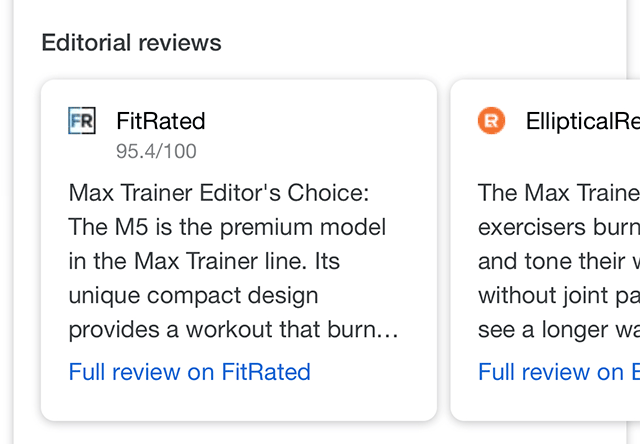
Editorial reviews have been spotted in the knowledge panel. It’s not available globally yet but gives users the opportunity to get editorial reviews of a product viewed alongside the general user reviews. Less gaming-susceptible as a user I like it and for manufacturers it definitely ups the game for getting your products in the hands of authoritative folks.
Barry Schwartz over at Search Engine Roundtable reported on some chatter in the forums of fluctuations in Google rankings. It wasn’t all complaints of losses but of some actual bouncing in results which is A-typical of an update being tested. Did you see anything?
Google Showing Time To Respond To Messages
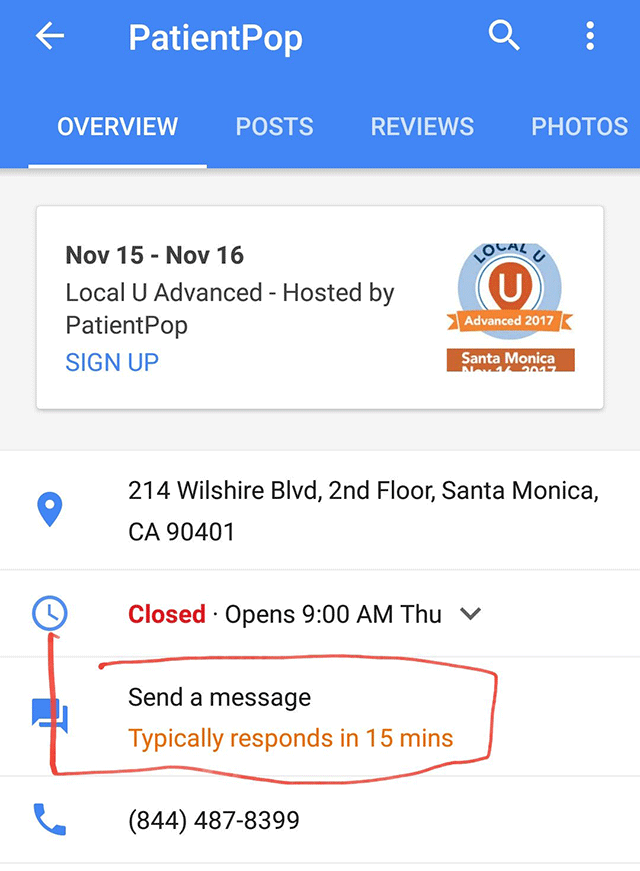
Also over on Search Engine Roundtable, Barry covered the rollout of the time to respond appearing to users to who send messages via their system. This could be good or bad for businesses depending on how you look at it. It it takes you a bit to respond (you know – because you’re filling orders or working with clients instead) your users will know not to expect immediate attention but that you will reply.
AMP & Canonical Pages To Be Sync’d
If you use AMP this is important. Google has announced that the AMP pages of a site and the page they canonical to will need to offer the same content (or as they refer to it, “very close parity”) and those which don’t after February 1, 2018 will not appear in search. Obviously this makes sense but some publishers will need to make some adjustments to ensure they comply.
Trust In Publishing
Matt Southern over on Search Engine Journal reported on the introduction of 8 new trust indicators for publishers. Basically these indicators will let readers know the type of content a specific source tends to generate and will include:
- Best Practices: Ex – funding sources, ethics
- Author Expertise: Who wrote it and their expertise
- Type of Work: It a piece opinion, advertising, analysis
- Citations and References: Sources behind a piece
- Methods: Processes and motivation behind the story (this one will probably be the hardest)
- Locally Sourced: Is the story locally sources
- Diverse Voices: Does the publisher gather stories for various types of sources and across different opinions
- Actionable Feedback: Does the publisher engage with users and collect their opinions and thoughts
It’s going to be very interesting to gauge the impact this has on news and opinions.
Reviews Are The #1 Local Ranking Factor
Local SEO Guide examined 200 local ranking factors and came to a logical conclusion – reviews are a strong ranking factor. This makes absolute sense given what Gary Illyes has noted about sentiment analysis but one needs to consider whether the reviews are the ranking factor they seem to be or if sites and companies that would have the other ranking factors locked down would also have strong reviews. That is, did the reviews come first or do sites that rank get more and better reviews.
Excellent New AdWords Features
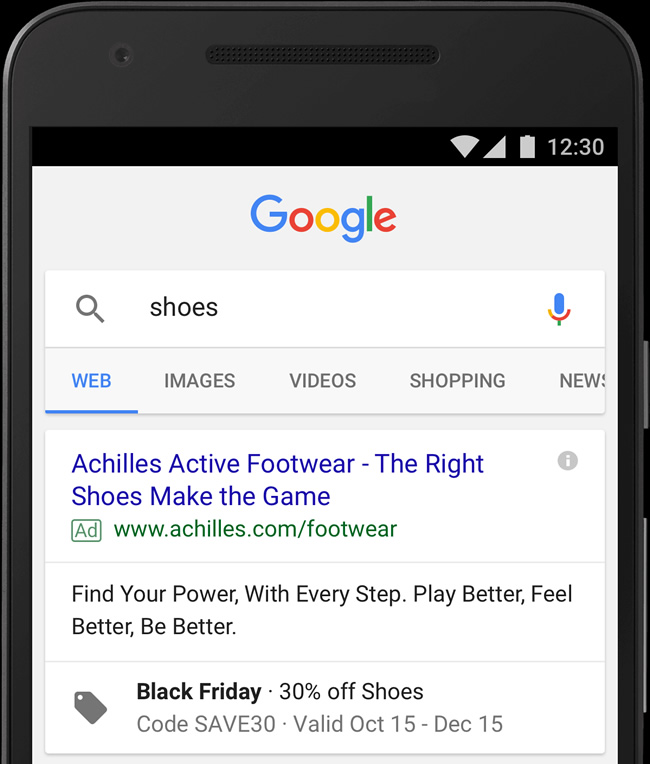
Google has rolled out some new AdWords featured for the holidays. They new additions include:
- Promotion Extensions: You can now add extentions that advertise specific promotions with times to display so you don’t need to rewrite your ads to advertise them.
- Custom Intent Audiences: On The Google Display Network you can now target people based on data from your site, campaigns and YouTube channel. To use their example, “if you’re a travel agency offering holiday getaways, Google could automatically create an audience of people shopping for ‘all-inclusive ski resorts’ or ‘flights to Palm Springs.'” It’s going tob e interesting to see how accurate they are with this but it’s a great idea.
- New Opportunities Page: Google has added new infoirmation to their Opportunities page to add new insights into ways to enhance your campaigns to add what they refer to as ‘more actionable items’.
Over on Search Engine Journal, Matt Southern discussed the recent upgrades to Facebook’s Events App. The app has been expanded and renames Events and now includes local businesses like bar, pubs and other local businesses to assit users in finding things to do whether they’re in theri home town or traveling. As Matt points out, this may be bad news for services like Yelp and Foursquare and Facebook has access to a lot more data about what you and your friends like to do.
New Pinterest Lens Look
Pinterest is adding some features to it’s Lens and it’s actaully quite a good idea for both users and advertisers given other moves they’re making. Users can now (for example) take a picture of items in their wardrobe and get suggestions of other items they might like based on their style and how to wear them. They’ve also put out Pincodes which are basically QR codes (we all use those all the time right?) and will link back to a board in Pinterest.
Google has added a new feature to Google Assistant and I like it. the new feature allows users to communicate from one device (Google Home, mobile device, etc.) to others basically making it an intercom. You can announce anything from dinner to leaving for school or pretty much anything else and it even come with some nice pre-built chimes and sounds. There are some holes in it and it’s not perfect for real-life communications but it’s a good and interesting first step.
And speaking of Google Home, Google has also upgraded the app that goes with it. The app is now far more intuitive and includes a lot more features allowing users to easily browse trailers, some very handy upgrades search capabilities and more. This isn’t a big win for SEO’s BUT it is important that we all remember to keep and eye on this type of tech and where it’s going as it’s going fast and changing the way people interact with their devices.
Smart Speaker Owners Speak Instead Of Type
A recently released report by Invoca has confirmed what others have before, smart speaker owners are using their devices with voice instead of typing. There is also a lot of other interesting data in the report for advertisers on people’s willingness to listen to ads in specific scenarios so if you want to advertising into this new(ish) medium this is a highly useful article.
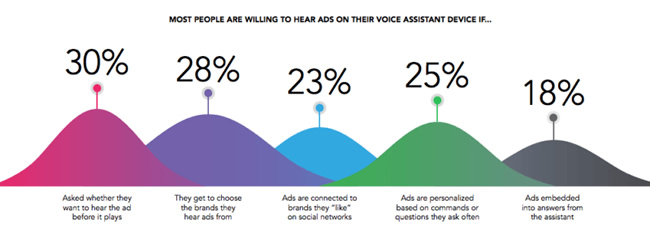
Google has made a big change in what they display in their map results. The change involves filtering which businesses and points of interest are displayed based on the perceived intent of the user. For example, a driver may see a gas station and someone on a bus may see transit stops where a walker may get coffee shops.


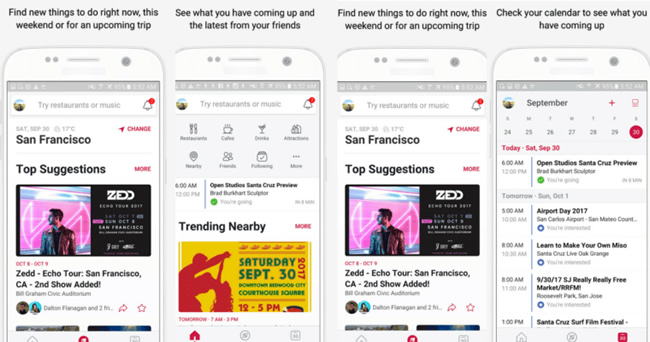
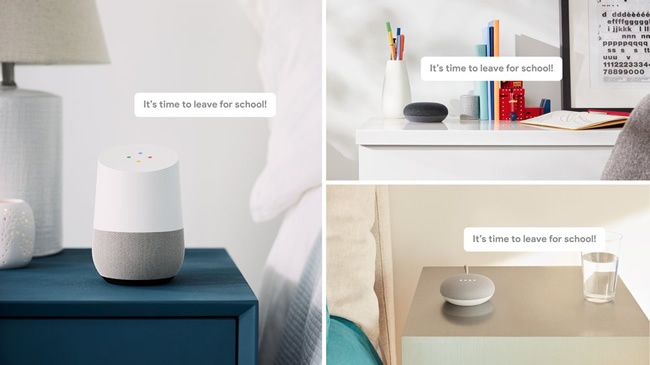
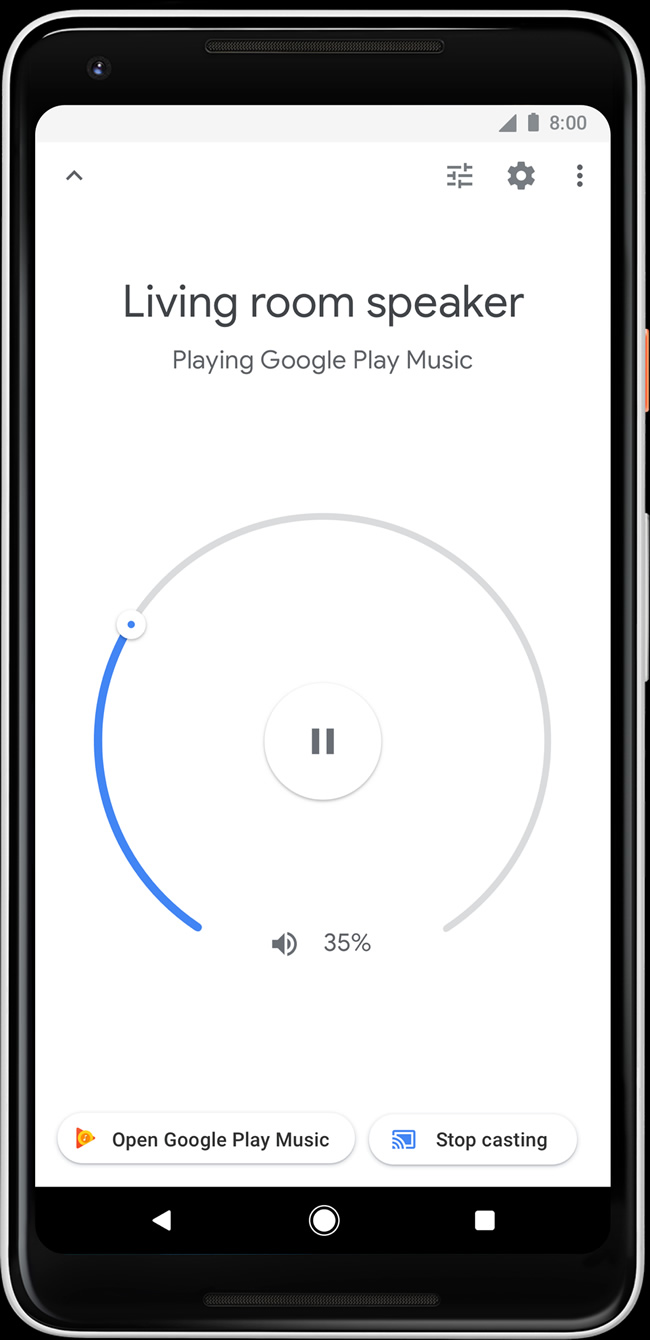
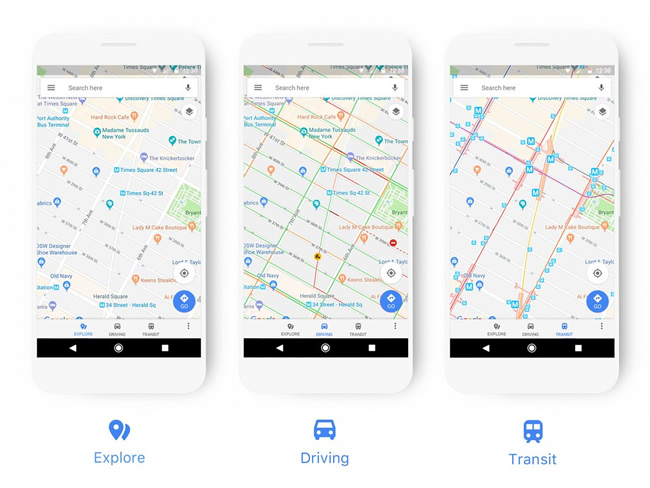
Honestly I can only see positives in Google showing a business’ time to respond. It rewards businesses who reply quickly and incentivizes other businesses to improve their response time. I don’t think it will affect any business negatively unless it says like “Typically responds within 1 week”. But if that’s the case, you should probably fix that instead of getting upset at Google for letting people know that! 🙂
Agreed. And if it does take you a week to respond it’s probably better for people to know that in advance than to message and then wait while crickets chirp. 🙂